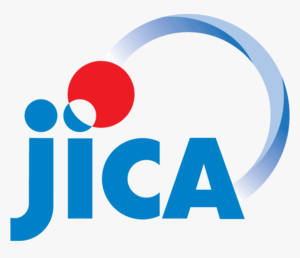Ghana Health Service collaborates with JICA to disseminate CHPS database system
 The Ghana Health Service (GHS) has collaborated with the Japan International Cooperation Agency (JICA) to disseminate a Community-based Health Planning and Services (CHPS) database system to enhance information management.
The Ghana Health Service (GHS) has collaborated with the Japan International Cooperation Agency (JICA) to disseminate a Community-based Health Planning and Services (CHPS) database system to enhance information management.
The system was developed by the GHS and JICA to collect reliable, concise and consistent data systematically.
It was introduced during a CHPS Database Dissemination forum organised in Accra as part of efforts aimed at strengthening CHPS implementation under the Technical Cooperation Project ‘CHPS for Life Project to accelerate the achievement of Universal Health Coverage (UHC).
The CHPS initiative, created in 1994 to reduce barriers to geographical access to healthcare, was introduced in the Upper West in 2015, in the Northern and Upper East Regions in 2017, and in the Savannah and North East Regions in 2019.
The Policy, Planning, Monitoring and Evaluation Division (PPMED), as part of its Policy Department plan and budget for 2019, proposed the adoption and deployment of the JICA supported CHPS database system in the remaining regions.
Mr Kwame Bimpeh, Head of Centre for Health Information Management, PPMED, GHS, said the purpose of the National dissemination was to introduce the CHPS database to ten regions since the Northern Regions and Eastern region had already been using the system.
The system, he said, generated information that could be used in monitoring the overall CHPS implementation and to plan training, mobilise resources and improve the quality of CHPS related services.
Mr Bimpeh said the database was a system for districts and regions to update and to monitor the status and quality of CHPS implementation.
He said it was a management tool to provide quarterly information to support managers to identify gaps in the scaling up of CHPS, develop evidence-based plans, mobilise and distribute resources based on needs.
Mr Bimpeh said the system was cost-effective since it did not require lots of resources, was flexible, reliable, easy to process for interpretation, among others.
Ms Satoko Ishiga, Chief Advisor of the Project, said the CHPS database was first developed to provide relevant information for project implementation as part of the first phase and it was enhanced for use by both the project and the GHS staff in scaling up CHPS in the second phase.
Currently, she said, the CHPS database system was being implemented in 55 districts of Savannah, North East, Northern, Upper East and Upper West Regions and had also been introduced in 33 districts in the Eastern region.
The CHPS database has led to the pragmatic training and deployment of Community Health Officers, the extension of potable water and electricity as well as the provision of medical equipment to over 1400 CHPS zones.
She said it also led to the complete demarcation of CHPS zones to cover the entire population in the five regions to attain UHC.
She said technical training sessions were being planned in the remaining regions to introduce the CHPS database to soon cover the entire country within the stipulated time for project implementation.
Source: GNA
